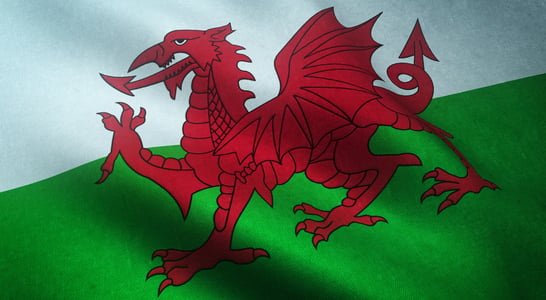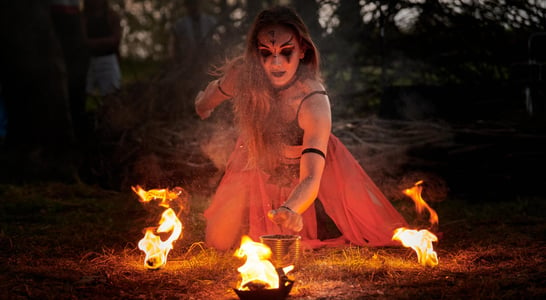
Orthodox Holy Week
Orthodox Holy Week is a deep and meaningful journey leading up to Easter, which celebrates Christ’s resurrection. This sacred week starts with Palm Sunday, marking Jesus’ arrival in Jerusalem, greeted as a king.
Each day then carries unique themes and moments of reflection. Early in the week, the parable of the Ten Virgins is highlighted, symbolizing vigilance and spiritual readiness.
Learn More About Orthodox Holy Week
Midweek, the themes of betrayal and forgiveness emerge with Judas’ betrayal and the anointing of Jesus’ feet by a repentant woman. Each service, filled with hymns, stories, and symbols, draws believers into the last days of Jesus’ earthly life, focusing on the passion, love, and sacrifice that define the week’s events.
Toward the end of Holy Week, the emotions grow intense, peaking on Holy Thursday and Good Friday, which recall the Last Supper, Jesus’ arrest, and his crucifixion. During these somber days, believers engage in readings and prayers that remember his suffering. Friday’s procession with the Epitaphios (a symbolic cloth representing Christ’s body) moves through the church or community, an expression of mourning and respect.
Holy Saturday then shifts into anticipation, leading to Easter’s midnight celebration. As candles light up the dark church, worshipers proclaim, “Christ is risen!”
The mood shifts to joy, marking victory over death and the promise of new life, culminating in Easter Sunday celebrations filled with light, music, and shared hope.
How to Celebrate Orthodox Holy Week
Celebrating Orthodox Holy Week can be a deeply personal and inspiring journey. Here are some simple and heartfelt ways to dive into the spirit of each day.
Prepare a Candlelit Home Altar
Set up a quiet space at home with candles, an icon, and a Bible. Each day, light a candle and read a passage or hymn related to the day’s theme. This creates a calming space where everyone can reflect on the week’s events, setting a special tone for Holy Week.
Serve and Connect
Holy Week calls for compassion! Plan small acts of kindness for each day. Bring a meal to a neighbor, write a heartfelt note, or donate to a charity.
These acts honor Christ’s teachings and bring the family together with purpose, embodying the love at the heart of this week.
Join in the Services
Many Orthodox churches hold unique services every day during Holy Week. Participate in as many as possible, either in person or online.
Attending these services brings the journey of Holy Week to life, from Palm Sunday’s joy to the solemn Good Friday processions, reminding everyone of the beauty of shared worship.
Reflect Through Art
Create Holy Week-inspired art or crafts. Young children might enjoy making palm crosses or coloring scenes of the Last Supper, while teens could try drawing or journaling reflections on forgiveness or hope.
These activities provide a hands-on way to explore and understand the week’s spiritual depth.
Hold a Simple Meal
On Holy Thursday, hold a simple family meal in remembrance of the Last Supper. Serve basic foods and read from the Gospels, discussing the importance of sharing and communion. This time together reinforces family bonds and deepens appreciation for the traditions of Holy Week.
History of Orthodox Holy Week
The origins of Orthodox Holy Week go back to the early centuries of Christianity. By the second century, Christians were marking Jesus’ final days with fasting and prayers, but Holy Week, as a structured series of events, took fuller form by the fourth century.
During this time, Christian communities in Jerusalem started commemorating specific events, such as Jesus’ entry into Jerusalem and his crucifixion, with special services. One notable figure, a Christian pilgrim named Egeria, documented Holy Week observances in Jerusalem around 381 AD, describing processions, prayers, and the unique way each day of the week was honored.
Saint Athanasius, a bishop in the fourth century, and others like Saint Epiphanius helped promote Holy Week’s formal observance throughout the Christian world.
The week’s traditions continued to develop, adding rituals like the Bridegroom Services, the Lamentations, and the lighting of candles, creating an experience of both reflection and anticipation.Over time, fasting practices also became more structured. By the third century, Christians were observing a week-long fast, with Good Friday and Holy Saturday as particularly solemn days.
Orthodox Holy Week is rich in symbolic acts, such as washing feet on Holy Thursday and carrying a cloth representing Jesus’ body on Good Friday. These traditions bring the story of Jesus’ sacrifice and resurrection into a deeply personal experience for believers.
Today, Orthodox Christians around the world still follow many of these ancient practices, preserving Holy Week as a time of remembrance, humility, and shared hope for renewal. This journey from early observances to today’s detailed services shows how Orthodox Christians have carefully honored this week’s events for centuries, keeping its profound meaning alive across generations.
Also on ...
View all holidaysGeologists’ Day
Don’t take the ground beneath your feet for granted: honor the scientists that have delved into the Earth to teach us more about it on National Geologist’s Day.
First Contact Day
On April 5th, 2063, Zefram Cochrane makes first contact between man and extraterrestrials: this day is for Trekkies everywhere to let their geekdom out.
Gold Star Spouses Day
Courageous partners, facing loss with resilience, forming an unspoken bond—a testament to strength beyond words.
We think you may also like...
Christmas Day
Jingle all the way! Deck the halls with boughs of holly, indulge in delicious treats, and make unforgettable memories with loved ones.
Day of the Dead
Embrace a vibrant celebration where vivid colors, captivating altars, and joyful gatherings pay homage to ancestors with deep respect and cherished memories.
St. David’s Day
Embracing traditions with daffodils and lively festivities — a celebration weaving Welsh culture into joyous community gatherings.







